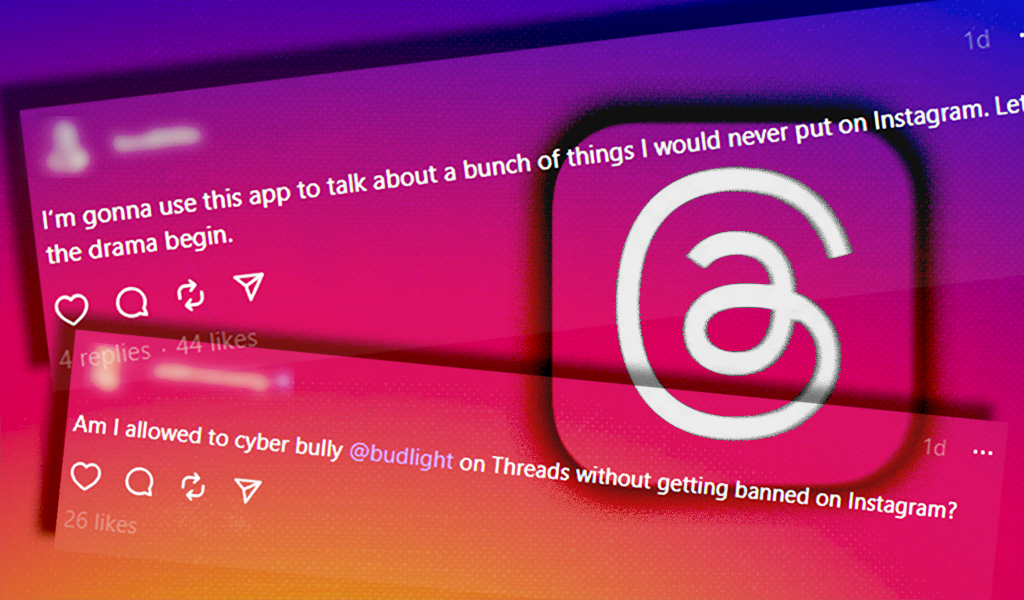MiscreantMouse
- 3 Posts
- 38 Comments

 31·2 years ago
31·2 years agoUnfortunately, in “BPA Free” plastic, BPA has usually been replaced with very similar chemicals, which probably cause the same problems.

 12·2 years ago
12·2 years agosay goodbye to IP67 rating
No need, Samsung’s S5 had IP67 and a removable battery. (and a 3.5mm audio jack)

 17·2 years ago
17·2 years agoHe’s always the one giving a ‘bipartisan’ veneer to these awful bills. Here’s one trying to end encryption, which he co-sponsored with Lindsey Graham

 2·2 years ago
2·2 years agoOops, you’re absolutely right about the attribution, the quote I posted above is from an earlier letter, I had too many open at once.
Unfortunately, the provision you mention is essentially a bad-faith attempt to skirt the first amendment objections, while leveraging the imposed ‘duty of care’ to allow State AGs to censor with impunity. From p.6 of the more recent letter:
KOSA will enable politically motivated actors to purge the Internet of speech that they dislike under the guise of “protecting minors.” Section 11(b) permits state attorneys general to bring enforcement actions whenever they believe that a resident of their state has been adversely affected by an alleged violation of KOSA. The inevitable abuse is entirely predictable. Consider two possibilities. First, in the aftermath of the May 14, 2022 mass shooting in Buffalo, New York Attorney General Letitia James issued a report blaming social media platforms for hosting the hateful speech that radicalized the shooter and calling for increased civil liability.27 Under KOSA’s duty of care, James could file suit 28 alleging failure to mitigate or prevent “physical violence” that might affect a minor user to pressure platforms into removing any speech deemed “hateful.”
Second, some have already admitted that KOSA will be 29 used to censor LGBTQ content, especially that which relates to gender-affirming care. Armed with cherry-picked and selectively interpreted studies associating trans content with “anxiety, depression . . . and suicidal behavior,” 30 an ambitious attorney general will claim that “evidence-informed medical information” requires that platforms prohibit minors from viewing such content under KOSA’s duty of care. A state attorney general need not win a lawsuit—or even file one at all—to effectuate censorship. They need only initiate a burdensome investigation to pressure platforms to take down or restrict access to disfavored content.(31)

 2·2 years ago
2·2 years agoWould it be impossible to create separation between sites used by older teens and adults?
Obviously it’s not impossible, it just requires sites to obtain a verifiable proof of age, i.e., a government ID.
A lot of pathological optimism in this thread, and it might not impact you (at first), but the document you’re quoting explains why a lot of people are concerned:
KOSA would require online services to “prevent” a set of harms to minors, which is effectively an instruction to employ broad content filtering to limit minors’ access to certain online content. Content filtering is notoriously imprecise; filtering used by schools and libraries in response to the Children’s Internet Protection Act has curtailed access to critical information such as sex education or resources for LGBTQ+ youth. Online services would face substantial pressure to over-moderate, including from state Attorneys General seeking to make political points about what kind of information is appropriate for young people. At a time when books with LGBTQ+ themes are being banned from school libraries and people providing healthcare to trans children are being falsely accused of “grooming,” KOSA would cut off another vital avenue of access to information for vulnerable youth.

 4·2 years ago
4·2 years agoNeat how you blithely ignore that aside from Blumenthal, a 75 year-old who has been trying to eliminate the open internet for ages, the other author is Marsha Blackburn, a racist tea party republican who kept asking for Obama’s birth certificate and doesn’t believe in climate change… yep no issues there.
JFC, the tech companies, especially Google and Meta, would love to have a government ID for all their users, they don’t make their money on content, they make their money selling advertising, and tracking their users across the internet is a big part of that.
If you’re this lost in the woods, and refuse to believe the overwhelming consensus of legal experts regarding the consequences of this legislation, or even the GOP’s open admission of their intent to misuse the bill, then yes, I guess there’s no getting through to you. Good luck with those critical thinking skills.

 5·2 years ago
5·2 years agoDo you think that’s safe to say? Here’s what some of the experts say about the rewrite. Spoiler alert: the problems were not addressed.
It’s really hard to take you seriously when you’re very optimistic about the bill’s authors, but very doubtful about all the first amendment lawyers explaining the legal consequences of the bill.

 6·2 years ago
6·2 years agoLol, ok, I’m sorry it’s so difficult. Anyway, it’s included in the link I provided above, but the ACLU, EFF, GLAAD and over 90 organizations have sent an open letter to congress outlining the dangers in this bill, so those ‘claims’ shouldn’t be too hard to verify.

 10·2 years ago
10·2 years agoAgain, I think you are being very naive about the language in this bill, and attempting to apply a common use interpretation, rather than a legal interpretation. It doesn’t matter what the bill says to you, it matters what the bill means for the legal system.
Why do you think that so many legal & tech professionals are up in arms about this bill? Here is more information about the GOP plans to use this bill to censor LGBTQIA+ content.
I think the conversation should be preventing abuse of laws in general.
How do you expect this to happen in the real world? The GOP is very open about their plans to abuse this law, how do you expect to stop them?

 16·2 years ago
16·2 years agoYou are definitely not a lawyer, and the people backing these bills intentionally use language that creates a specious justification for the erosion of privacy and freedom online.
This bill will require everyone to start using their government ID to post just about anything online, while allowing state AGs to censor basically anything they want in bad faith.
The Heritage Foundation, a right-wing hate group, has already made clear that they will use this to censor any/all LGBTQIA+ material.
Here is a lawyer providing a more detailed thread explaining the issues with this bill.

 42·2 years ago
42·2 years agoFunny how the right wing never cares about free speech & censorship when their side is abusing it.
Anyway loser, this was posted by a voter.

 3·2 years ago
3·2 years agoI’m not the person you replied to, but I use Matrix for this, and it works very well for my purposes.

 5·2 years ago
5·2 years agoSo, you may not be aware, but these days Police are in the habit of dodging the legal requirement for a warrant to obtain similar data:
Amazon’s Ring devices are not just personal security cameras. They are also police cameras—whether you want them to be or not. The company now admits there are “emergency” instances when police can get warrantless access to Ring personal devices without the owner’s permission. This dangerous policy allows police, in conjunction with Ring, to decide when access should be granted to private video. The footage is given in “cases involving imminent danger of death or serious physical injury to any person.” The company has provided videos to law enforcement, without a warrant or device owner consent, 11 times already this year. This admission comes in response to a series of critical letters from Senator Ed Markey (D-MA). Markey chastised the company over many of the same privacy problems that EFF has brought up, including the far-reaching audio capabilities of Ring devices, and the company’s refusal to commit to not incorporate facial recognition technology into their cameras.
I don’t have more information on this particular company’s dealings with law enforcement, but I certainly think it’s reasonable to be concerned.
I also think most cars can’t be stopped dead with a traffic cone, so these protesters are highlighting the unpredictable and sometimes dangerous behavior of these vehicles in mixed traffic. While I’m sure the folks involved would like to see steps taken to address cars and transport infrastructure more generally, it’s hard to see why you would call this ‘hypocritical’.

 9·2 years ago
9·2 years agoImo, that’s a silly false equivalence. Personally-controlled cameras in the pocket aren’t the same as being routinely surveilled by law enforcement, and there are often no viable alternatives for transport in the US, given the existing infrastructure, which is a big part of the reason people are upset.

 8·2 years ago
8·2 years agoTurns out not everyone wants life to be that way in the US, hence, protestors.

 8·2 years ago
8·2 years agoSure you read the article? Maybe you disagree with their objections, but the article lays them out:
A video from the group that has gained almost 5 million views on Twitter points out that AVs block buses, emergency vehicles, and everyday traffic. It also claims that they’re partnering with police to record everyone all the time without anyone’s consent. And, most importantly, they require streets designed for cars, not people or transit.

 12·2 years ago
12·2 years agoThese folks are awesome, and they’re on Mastodon!




Which is why trans girls need to have completely blocked testosterone, usually for a full 2 years, before any kind of competition.
They literally have less testosterone than the cis girls.